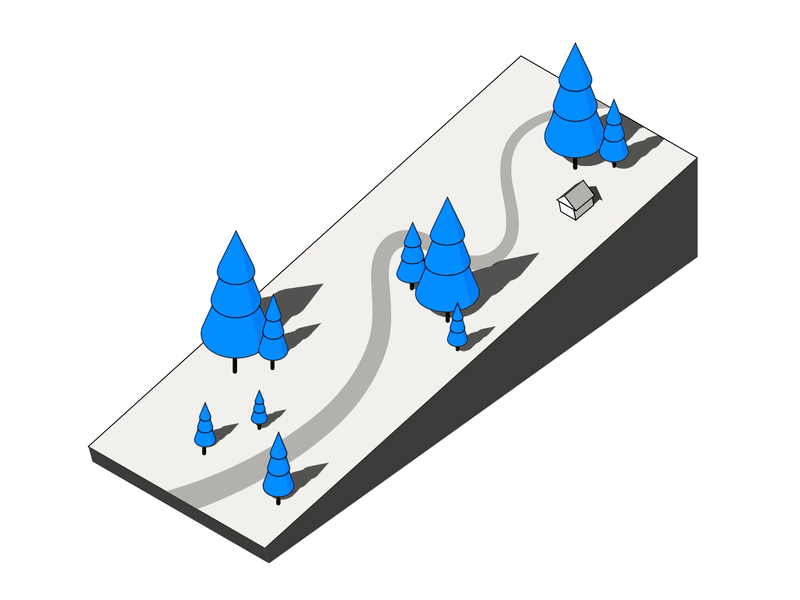Unintentional Habit Stacking - How it can make or break you
Sep 2 '21 • Written by Yassen Shopov
📖 7 minute read
If you’re reading my blog series, the chances of you being willing to take control of your life are rather high.
However, as much as we want to pursue control in all spheres of our lives, sometimes we just fall victims to our old habits and spiral out of the so-desired control. As James Clear, author of “Atomic Habits” said:
“You do not rise to the level of your goals. You fall to the level of your systems“
This is the reason why most people don’t stick with their New Year’s resolutions, among other things. It’s one thing to say you will exercise every day of 2021, and a completely another thing to go out and actually lift the heavy weights and run the distance. Goals are supposed to serve as a general direction for our efforts, but instead, we use them as a substitution for the effort itself. It is much easier and, well, more pleasant to dream about getting the 6-pack abs than to actually diet and train your core.
If you imagine your life as a machine of your own making, it would work like this.
You create all those systems and automation to keep your progress in check (setting up habits, reminders, getting accountability buddies, putting deadlines on projects)
You put the effort without relying on extrinsic motivation too heavily
You “maintain“ your systems by comparing your results with your expectations
This sounds like a perfect plan, except that it assumes one thing - that you can detach yourself emotionally from the process and just act on the things you have set out to do.
However, this often proves difficult.
And it’s exactly those little habits that we don’t take care of that tend to derail us. When we leave the small gaps in our time go by, we tend to lose control, and thus - we lose motivation. Small unintentional habits can very easily stack. One random scroll in Instagram in between writing sessions may turn into an unhealthy social media addiction, which results in worsened focus, which results in even more time spent scrolling. This is not to say that social media is forbidden and that one minute of scrolling will ruin your life, but it serves to show how easy it is to train yourself into unhealthy habits without your own consent.
Minutes in-between task switching
Different tasks engage different parts of our brain, so this makes the concept of multitasking seem even more impossible. However, even if you partake in the absolutely logical act of, well, switching between tasks, you immediately take a risk.
When you finish one task, your brain wants its dopamine, especially before beginning another hard or exhausting task. And it’s in those few minutes between tasks that are the perfect time for you to distract yourself with unintentional habit stacking.
How can we fix that?
If you don’t want to engage in unwanted behavior, you should choose a default activity to go to in between your main tasks. Whether it be some book reading for a few minutes, or a talk with a friend, or a walk, you should have a set of pre-chosen activities to default to.
The second part of the solution is to increase the distance between you and the bad habits. Get away from your phone, put timers on your social media apps, get a few steps away from the fridge.
Compound interest
A term that comes from finances and statistics, compound interest is “is the interest on a loan or deposit calculated based on both the initial principal and the accumulated interest from previous periods”. In the world of habit building, this can be translated as the following - the repetitive actions you take in a particular direction get easier every day and bring more and more benefit the longer the habit lasts.

This can be valid both for good and bad habits. If you, say, smoke every day, the first few cigarettes won’t cause long-term damage by themselves. But the compounding number of unhealthy substances in your organism, the increasing levels of addiction, and the decrease in willpower all make it harder, and even impossible to quit years down the line.
And when the compound interest occurs on an unintentionally stacked habit, the damage is even bigger. Since you don’t realize how those habits find their way into your lifestyle, since they are relatively unintentional, it becomes harder to defeat them. Things like nail-biting when you are anxious, stress-eating, etc.
Make you or break you
As mentioned a few times above, all rules that apply to habits are the same for both good and bad habits. Unintentional habits can be a good thing when nudged gently in the right direction.
The existence of so-called “corner-stone” habits is crucial. Many people start exercising for vain purposes, or for the sake of exercising alone. However, after getting into the intentional habit of exercising and training physically, it gets easier to shift into a healthier mindset - you tend to eat better, implement more efficient routines in the gym, take care of your sleep schedule. The intention was never to achieve all these things so fast, but the powerful habit of working out can make it much easier.
So, choose your intentional habits wisely, and take precautions so as to not let your unintentional habits break you.
[18:32]
by Thomas Frank
